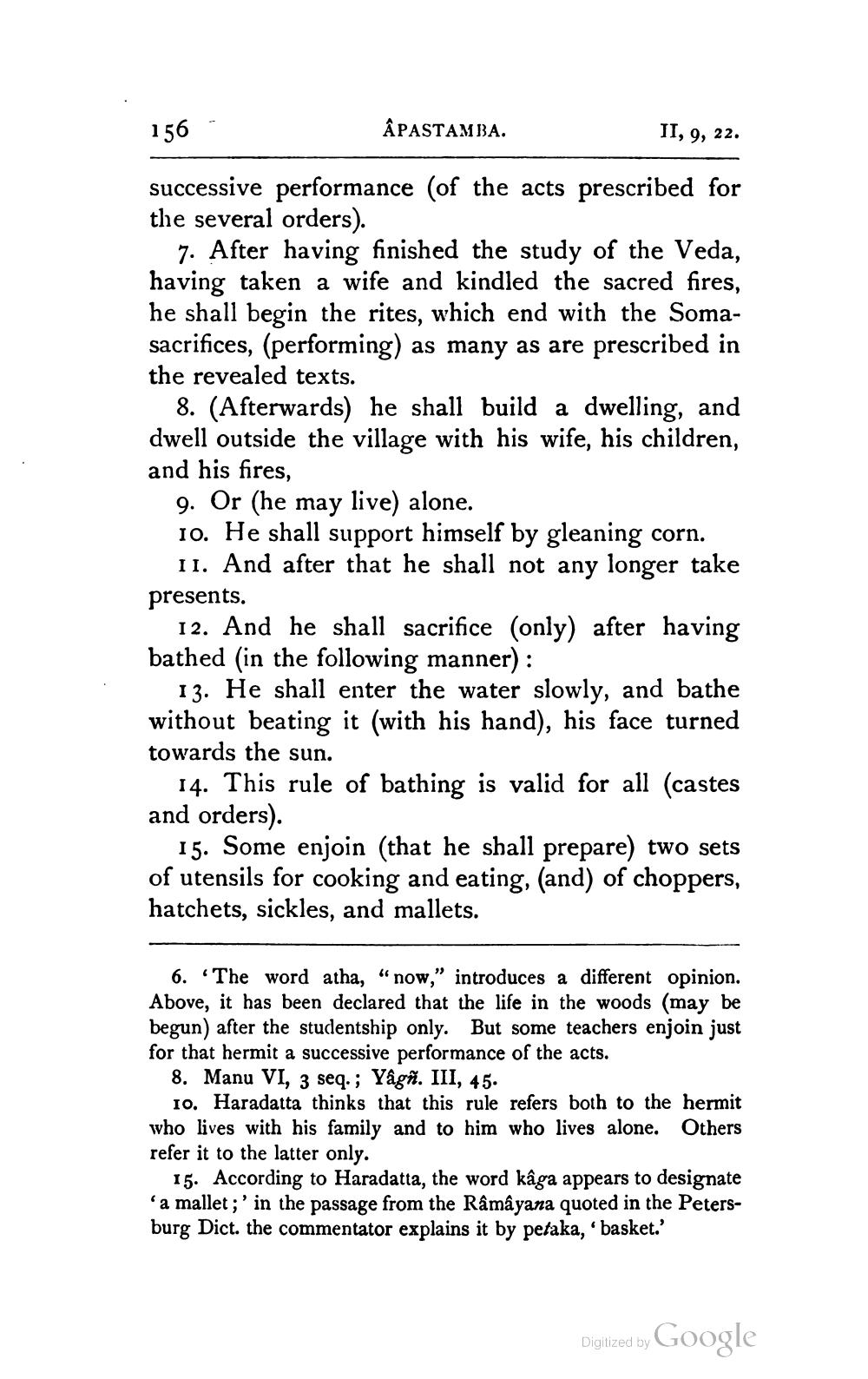________________
156 -
ÂPASTAMBA.
II, 9, 22.
successive performance (of the acts prescribed for the several orders).
7. After having finished the study of the Veda, having taken a wife and kindled the sacred fires, he shall begin the rites, which end with the Somasacrifices, (performing) as many as are prescribed in the revealed texts.
8. (Afterwards) he shall build a dwelling, and dwell outside the village with his wife, his children, and his fires,
9. Or (he may live) alone. 10. He shall support himself by gleaning corn.
II. And after that he shall not any longer take presents.
12. And he shall sacrifice (only) after having bathed (in the following manner) :
13. He shall enter the water slowly, and bathe without beating it (with his hand), his face turned towards the sun.
14. This rule of bathing is valid for all (castes and orders).
15. Some enjoin (that he shall prepare) two sets of utensils for cooking and eating, (and) of choppers, hatchets, sickles, and mallets.
6. "The word atha, “now," introduces a different opinion. Above, it has been declared that the life in the woods (may be begun) after the studentship only. But some teachers enjoin just for that hermit a successive performance of the acts.
8. Manu VI, 3 seq.; Yâgħ. III, 45.
10. Haradatta thinks that this rule refers both to the hermit who lives with his family and to him who lives alone. Others refer it to the latter only.
15. According to Haradatta, the word kâga appears to designate 'a mallet ;' in the passage from the Ramayana quoted in the Petersburg Dict. the commentator explains it by petaka, 'basket.'
Digitized by Google




